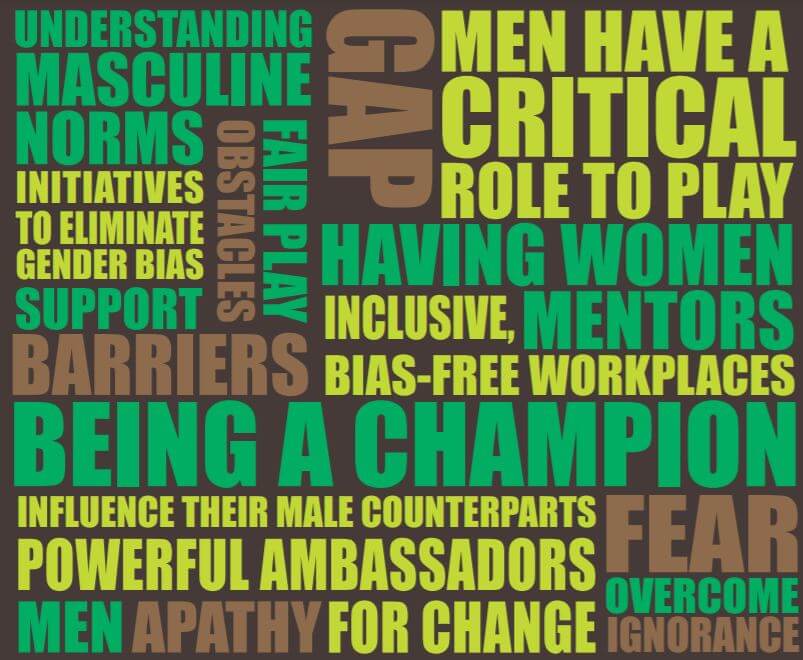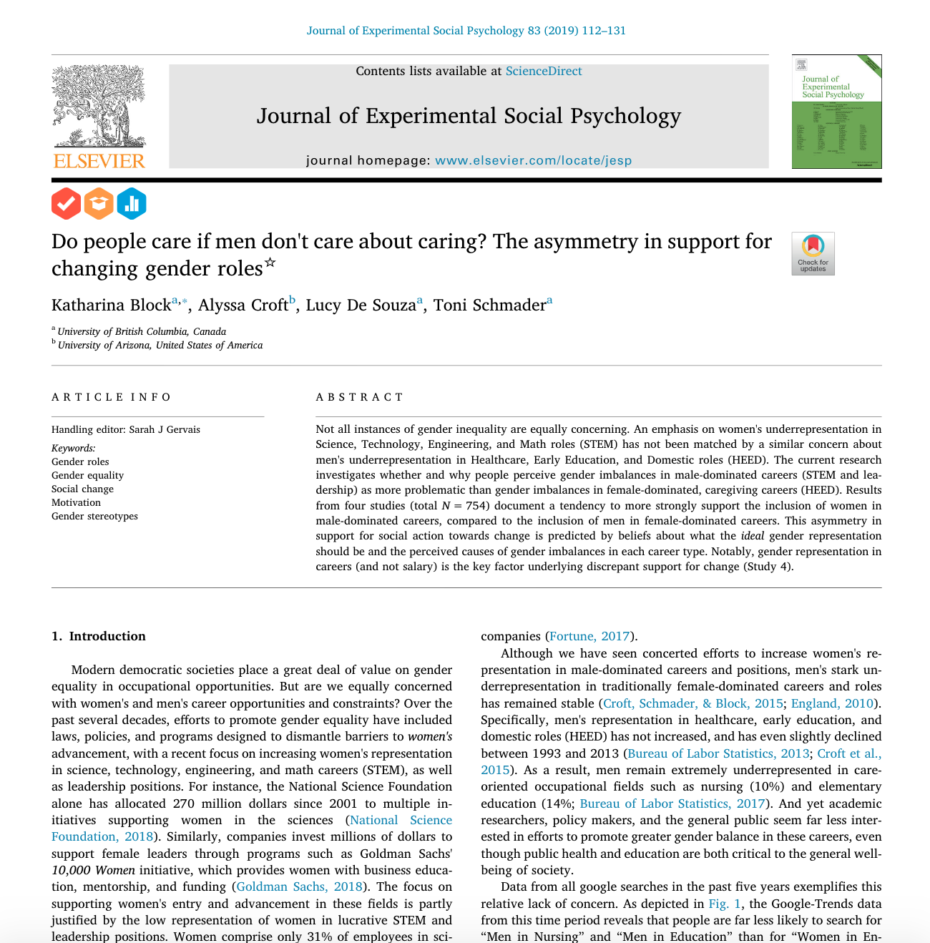Engaging men in gender initiatives: What change agents need to know
Engaging Men in Gender Initiatives is a series about men. When it comes to diversity and inclusion efforts—
especially initiatives to eliminate gender bias—Catalyst believes that men have a critical role to play. Yet too
often men are an untapped resource in such gender initiatives. To address this gap, this series offers advice
to change agents on effective ways to partner with men in ending gender inequalities.
This Calculator Puts a Dollar Value on the Invisible, Unpaid Work Done by Women
QUARTZ AT WORK FEBRUARY 28, 2018 BY ANNALISA MERELLI & YOUYOU ZHOU Liberian activist Leymah Gbowee won the Nobel Peace Prize in 2011 after turning a grassroots women’s movement into the force that ended her country’s civil war and eventually led to the election of Ellen Johnson Sirleaf, the first female president on the African continent. Gbowee also has a …
Five Ways Men Can Improve Gender Diversity at Work
Women are underrepresented in many global companies, particularly among senior leadership teams—and companies are missing out on opportunities as a result. A large and growing body of research shows that organizations with greater numbers of women, especially in leadership roles, perform better. For example, a 2016 Peterson Institute for International Economics study of some 22,000 global companies found that as companies increased the number of women among board members and senior leaders, their profit margins increased as well. Diverse teams bring diverse perspectives to a company, improving both problem solving and resiliency and making the organization more innovative and adapt- able to change.
Yet when companies try to fix this problem, they often center their efforts solely on women. Experience shows, however, that this is not enough to bring about material change. Such a narrow focus essentially walls off gender diversity as a women-only
issue instead of positioning it as a broader topic that has a significant effect on overall company performance. What’s more, at most companies, women who try to generate meaningful change on their own find that they are too few in number to produce the necessary impact. Men need to join their efforts in order to succeed.
7 Leadership Lessons Men Can Learn from Women
Research shows that the prevalence of male senior leaders is not a product of superior leadership talent in men. Rather, large quantitative studies, including meta-analyses, indicate that gender differences in leadership talent are either nonexistent, or they actually favor women.
With this in mind, it would be more logical to flip the suggested remedy: instead of encouraging women to act like male leaders (many of whom are incompetent), we should be asking men in power to adopt some of the more effective leadership behaviors more commonly found in women. This would create a pool of better role models who could pave the way for both competent men and women to advance.
4 Important Ways Men Benefit From The Gender Equality Conversation
We hear a lot in the media about the changes we need to make as a society to create a level playing field for women.
Men are now discovering there is something in this for them as well. Addressing gender equity in leadership not only removes disadvantages for women, but for men as well.
My life got easier after top surgery. Is this what male privilege looks like?
One other thing is clear. The inequality that women experience at work and in day to day interactions isn’t just in their heads. We need to recognize women’s work and women’s ideas. We need to be willing to envision a woman as president. I will keep fighting for women, no matter what body I inhabit.
Life of the Mind: Stories of Lives Upended
In 1992, Aleksandar Hemon traveled to Chicago on a journalistic exchange — and, when his native Bosnia was engulfed by war, found himself stranded. He wrote his first short story in English in 1995. Since then, the literary accolades have flowed, including a 2003 Guggenheim Foundation grant, a 2004 “genius grant” from the MacArthur Foundation, two PEN awards, and two National Magazine Awards. His first novel, The Lazarus Project (2008), was a finalist for both a National Book Award and a National Book Critics Circle Award.
Last fall, Hemon joined the Program in Creative Writing as a professor. His latest work is two conjoined memoirs: My Parents: An Introduction and This Does Not Belong to You (Farrar, Straus and Giroux). The family memoir came first. But as he revisited his childhood, Hemon says, “a lot of strange, interesting and baffling memories popped up,” and he assembled those “fragments and reflections” into This Does Not Belong to You.
Do people care if men don’t care about caring? The asymmetry in support for changing gender roles
Not all instances of gender inequality are equally concerning. An emphasis on women’s underrepresentation in Science, Technology, Engineering, and Math roles (STEM) has not been matched by a similar concern about men’s underrepresentation in Healthcare, Early Education, and Domestic roles (HEED). The current research investigates whether and why people perceive gender imbalances in male-dominated careers (STEM and lea-dership) as more problematic than gender imbalances in female-dominated, caregiving careers (HEED).









